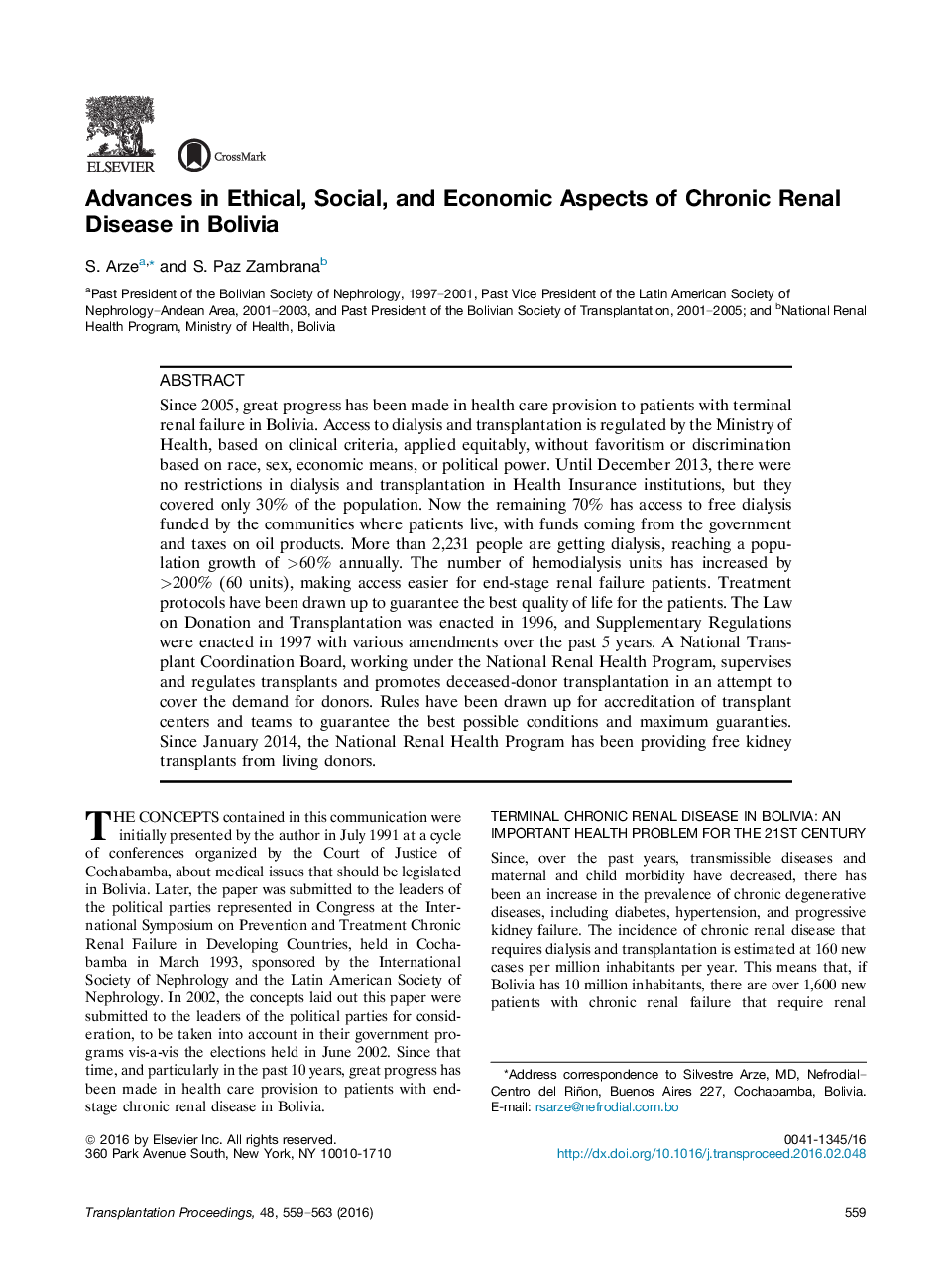| Article ID | Journal | Published Year | Pages | File Type |
|---|---|---|---|---|
| 6246976 | Transplantation Proceedings | 2016 | 5 Pages |
Abstract
Since 2005, great progress has been made in health care provision to patients with terminal renal failure in Bolivia. Access to dialysis and transplantation is regulated by the Ministry of Health, based on clinical criteria, applied equitably, without favoritism or discrimination based on race, sex, economic means, or political power. Until December 2013, there were no restrictions in dialysis and transplantation in Health Insurance institutions, but they covered only 30% of the population. Now the remaining 70% has access to free dialysis funded by the communities where patients live, with funds coming from the government and taxes on oil products. More than 2,231 people are getting dialysis, reaching a population growth of >60% annually. The number of hemodialysis units has increased by >200% (60 units), making access easier for end-stage renal failure patients. Treatment protocols have been drawn up to guarantee the best quality of life for the patients. The Law on Donation and Transplantation was enacted in 1996, and Supplementary Regulations were enacted in 1997 with various amendments over the past 5 years. A National Transplant Coordination Board, working under the National Renal Health Program, supervises and regulates transplants and promotes deceased-donor transplantation in an attempt to cover the demand for donors. Rules have been drawn up for accreditation of transplant centers and teams to guarantee the best possible conditions and maximum guaranties. Since January 2014, the National Renal Health Program has been providing free kidney transplants from living donors.
Related Topics
Health Sciences
Medicine and Dentistry
Surgery
Authors
S. Arze, S. Paz Zambrana,
